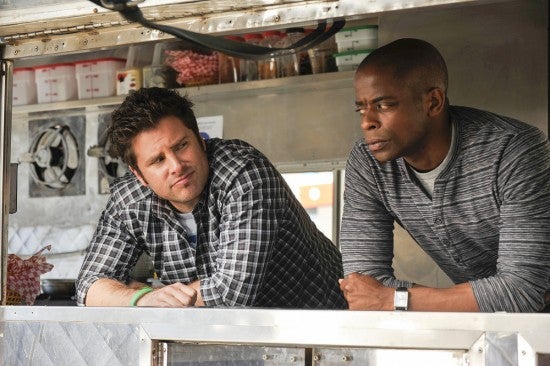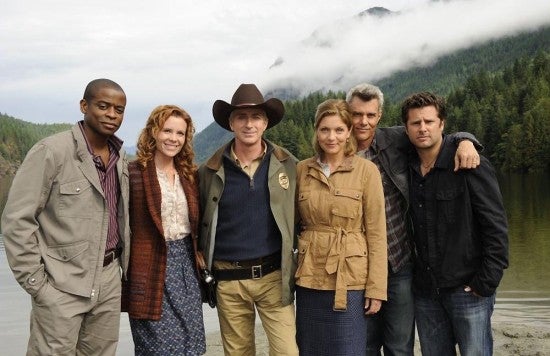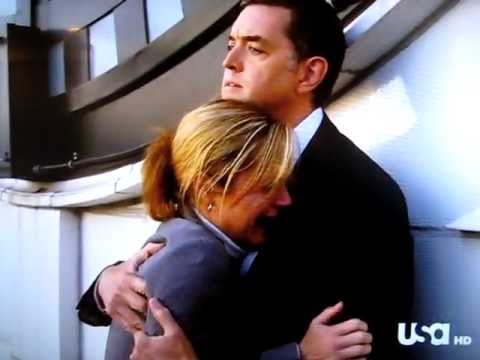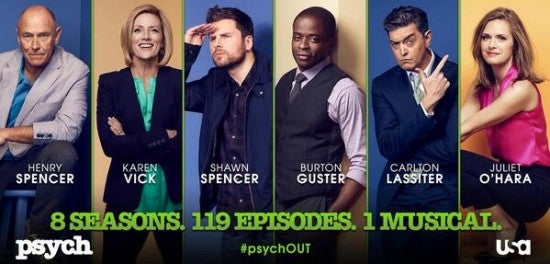The Top Ten Things Psych Did Right
With the conclusion tonight of its acclaimed eight-year run, Steve Franks’s procedural [...]

With the conclusion tonight of its acclaimed eight-year run, Steve Franks's procedural dramedy Psych got as long a life as a strange, fun hybrid show without a major star could expect. Following in the footsteps of Monk, the series helped create an identity for USA Network as the home of oddball, character-driven dramedies. Somehow getting better and better with age, Psych carved out a niche for itself and built a rapport with fans that will guarantee things like spinoff novels and the demand for a movie, a Season Nine comic or other such follow-ups for years to come. Riding high on the energy of a terrific finale and with handfuls of the show's trademark catchphrases trending on Twitter, this seems like a good time to focus on what Psych did right for the better part of the last decade. In no particular order:

The Bromance The relationship between James Roday's Shawn Spencer and Dule Hill's Burton Guster was the engine that drove the show; it was basically a buddy-cop movie from the '80s, except that it was made at a time when those films had already had a generation or two to ripen and become part of the cultural vernacular. Somehow, Psych managed to invoke those tropes without feeling like a retread or particularly dated. The result was a show that reveled in a sense of nostalgia but still felt surprisingly current, attracting a wide variety of fans who loved the show for different reasons. The way the relationship between Shawn and Gus drove the show was never more evident than in the final season, as the show struggled with wrapping up Gus's storyline; he'd always been somebody who wanted to settle down and have a "normal" life, but Season Eight was a journey of realization that he was better off with Shawn than he would have been on his own.

The Romance Sure, they had the typical "will they or won't they" trope -- but they did so without ever really allowing the non-relationship to detract from the central plot. The fact that it was transparent from the world go that Shawn and Juliet would end up together just meant the writers had a chance to allow that element of the series to fade to the background when it wasn't in use, and you didn't have the Cheers or The Big Bang Theory thing of a never-ending series of relationship contortions to maintain the status quo they needed. Once they did put Shawn and Juliet together, they managed to hit all of the key stories -- Lassiter finding out, Juliet discovering Shawn's secret and the eventual proposal -- in the span of a short enough period of time that it felt organic and believable, rather than either blowing that wad early and having a stagnant relationship for years or dragging out a season and a half's worth of stories over the life of the series.

The (Other) Romances Shawn's high school sweetheart Abigail Lytar was an enormously likable character, as was Declan Rand, with whom Juliet had a brief relationship. Neither of them felt like they'd been designed just to obstruct the progress of "Shules" or the larger Psych narrative, and both of them continued to be believable, likable characters even as the relationships ended. It probably helped that Rachael Leigh Cook and Nestor Carbonell are great character actors, but it was more than that: the writers made them rounded out characters who you could believe characters you were invested in could become enamored with. Declan lost out to Shawn simply because he was Shawn and it was destiny, while Abigail left Shawn after a serial killer put her life in danger and she realized that the value Shawn gave to the community outweighed their relationship...but she couldn't live with that danger long-term.

Theme Episodes There were so many theme episodes, so well done, that even before the head trip that was "A Nightmare on State Street," featuring zombies, Tears For Fears's Curt Smith and Bruce Campbell, we had a list of the ten best. It was something that started to really define the series fairly early on, with Abigail being introduced for the first time in a John Hughes homage episode, complete with the line "Can I borrow your underpants?" and a bunch of Judd Nelson references (later, incidentally, every member of The Breakfast Club would appear on the show except for Emilio Estevez). No other show has managed as epic a tribute to Twin Peaks, with about ten original cast members appearing in Psych's "Dual Spires," and the show's brilliant hundredth episode -- a tribute to the Clue movie -- was just about perfect.

The Villains On police procedurals, it often tends to happen that recurring villains are more of a liability than a benefit. Excepting the ones who define the series (like The Mentalist's Red John or Chuck's The Ring), recurring villains are often reused until they've been driven well and truly into the ground and then given an ignoble death because that's what the fan base is demanding. But in addition to the fact that Psych generally had pretty good villains, the Yin/Yang trilogy was a highlight of the series and should be looked to by other showrunners as a template to make that kind of storytelling work. Oh, and that's before we even get started on Cary Elwes's Despereaux...

Arrested Development In most sitcoms, you watch and eventually you start to be frustrated by the never-ending loop of arrested development that the characters find themselves in. Somehow, Psych made Shawn's continuing failure to grow an endearing trait and only really ever treated it as a problem when they had a story they wanted to tell with it. This allowed them to keep Shawn and Gus more or less unchanged for nearly a decade without getting that sinking "why don't Marshall and Lily ever move out of the apartment?" feeling.

Getting Away From the Premise As the series progressed, it became clear that the fake psychic element was taking a back seat to the character interaction, the mysteries of the week and the pop culture references. The fact that around the time that was happening, CBS rolled out The Mentalist and there was essentially a less comedic version of the same show on the market probably helped them decide they needed to really cement their niche. ("We had some fun with it. We actually made four or five jokes over the course of that season and hopefully they have a sense of humor about it," Roday told me in an interview. "I think they should because they have about fifteen times the viewership that we do so they should be feeling good about life in general. I've never seen the show, but I've spoken to enough people now who say they've found their sea legs and they're doing their own thing, and there's certainly enough of a difference now. I think it was just the idea that the premise was so similar that it gave us the opening to take a few fun, spirited jabs.") The real point, though, is that for most shows, sticking close to the premise is a recipe for success. When hiding the fact that he wasn't psychic stopped being a central part of the show, it could easily have felt like they were going too far afield. Instead, building the show around Shawn and Gus's personalities helped keep the show on the straight and narrow even while the "most important" part of the show fell by the wayside.

Supporting Cast That Tim Omundson and Maggie Lawson have both already got their own pilots in which they're leads on network shows is no surprise at all; while the tone of Psych was often light, the supporting cast could always be relied upon to deliver in the crunch. Short of Rick Grimes discovering that Lori had died, I can't remember a more emotional scene in recent memory on TV than the one where Juliet discovers Shawn's secret. Even just thinking about it, I'm a sympathetic cryer. Kirsten Nelson is great, too, and the biggest name on the show going in was Corbin Bernson, who overcame ridiculous wigs to deliver some of the best performances of his long career. The addition later in the game of Kurt Fuller was inspired. They all played characters who were iconic enough that they developed their own shorthand and could carry an episode by themselves or, when need be, disappear into the background completely and bring the solid performances in the one and only scene they have in a week.

Guest Stars Similarly, they never seemed to miss with guest stars. Names like Peter Weller, Freddie Prinze, Jr. and Mena Suvari were put to great use while people like Curt Smith and Ralph Macchio came complete with their own tongue-in-cheek humor built into their episodes. Great character actors like Ray Wise managed to come along and strengthen the show (even beyond his Twin Peaks-inspired appearance in "Dual Spires" and at the end of the day it always seemed like whatever piece of guest casting they were doing, the actor felt at home. Elwes, Cook, Carbonell and others just wandered right into the cast and made camp there. The producers and directors did a great job of making anybody and everybody feel like part of the Psych family (at least on camera).

Callbacks Suck it. I've heard it both ways. Gus, don't be... Hello, I'm Shawn Spencer, and this is my associate... That's a company car! Those are just a handful of the memorable catch phrases. Beyond that, there's the hidden pineapples, the pop culture references, the winks and nods to other roles played by actors in the series, the recurring jokes about Bud from The Cosby Show (for whom Gus is often mistaken, and who appeared in tonight's finale). On and on and on, there are callbacks and inside jokes that don't detract from the enjoyment of the casual fans but which make for great memes, t-shirts and the like. So many things that will literally just make a "Psych-O" laugh out of context for years after the show is done. You know that's right.
0comments